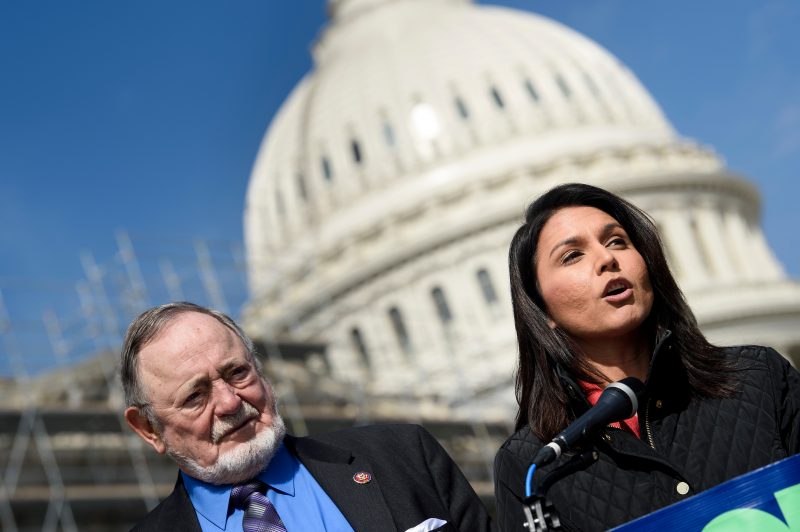Republican, Democrat unite on US bill to decriminalize cannabis
Democrat Tulsi Gabbard and Republican Don Young, members of the House of Representatives, introduced bipartisan legislation to decriminalize cannabis
(Brendan Smialowski)
Washington (AFP) – A Republican and a Democrat united on Thursday to present the US Congress with a bill to decriminalize cannabis, removing it from the list of dangerous substances where it persists under an “archaic” federal anti-drug policy.
While some states have already legalized cannabis use, current federal policies have brought “over-criminalization and mass incarceration,” said Tulsi Gabbard, a House of Representatives Democrat from Hawaii.
Medical cannabis treatment is legal in 33 of the 50 US states as well as the capital Washington. Recreational use is allowed in Washington and 10 states, yet the substance remains on the Drug Enforcement Administration’s list of dangerous drugs alongside substances such as LSD and heroin.
According to Gabbard, an Iraq war veteran, many former service members struggling with post-traumatic syndromes or chronic pain from wounds are left “with no other choice than to be given highly addictive opioids when many of them would choose medical marijuana if given the opportunity.”
She introduced the bill — which would let states set the policy — with Republican Don Young of Alaska in a display of cross-aisle unity at a time of polarized US politics.
Gabbard, who is seeking the Democratic party nomination for president, blasted the “billions of dollars” spent locking people up for non-violent drug offenses.
In January 2018 the administration of President Donald Trump canceled five directives issued by former president Barack Obama’s government, under which federal authorities refrained from prosecuting cannabis buyers or retailers.
The text aims to resolve the “contradiction between state and federal laws creating disorder in our economy and leaving state-licensed businesses and banks in confusion and uncertainty,” Gabbard said.
Cannabis professionals have no access to the banking system and are likely to be prosecuted by tax authorities, Young said.
The current law is curbing a burgeoning industry which generates billions of dollars in revenue and employs more than 200,000 people, according to NORML, the main pro-legalization lobby.
Young and Gabbard also introduced a second bill on the collection of data on cannabis. It would authorize studies about the effects of local legalization policies on health, crime or the economy.
Some of this research is currently prohibited, while other studies are currently based on hearsay, said Young.
Both texts must be voted on by the House of Representatives and then the Senate. If approved by each chamber and then endorsed by the White House they will become law.
Disclaimer: This story is published from a syndicated feed. Siliconeer does not assume any liability for the above story. Validity of the above story is for 7 Days from original date of publishing. Content copyright AFP.


